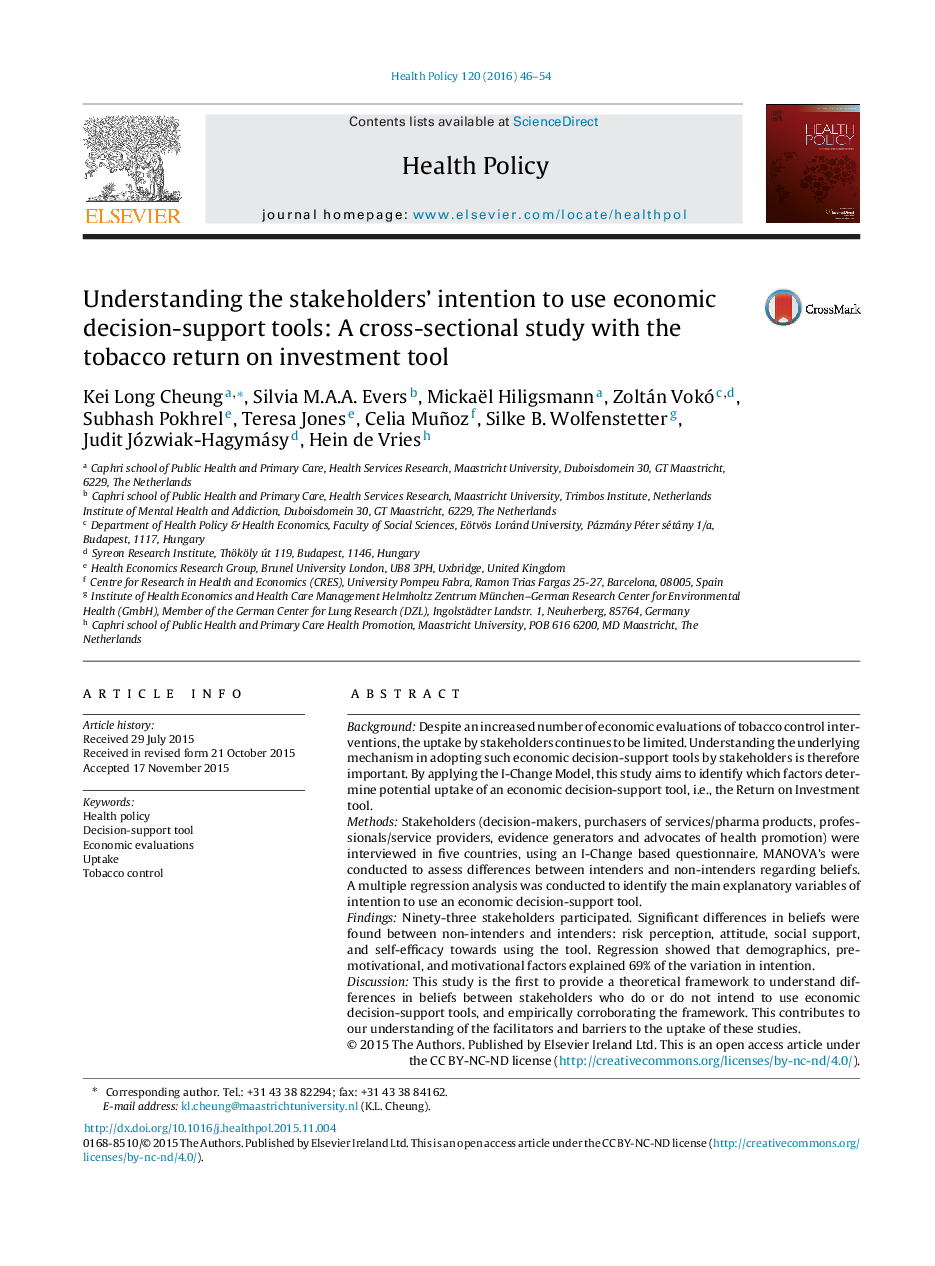| کد مقاله | کد نشریه | سال انتشار | مقاله انگلیسی | نسخه تمام متن |
|---|---|---|---|---|
| 6239139 | 1278987 | 2016 | 9 صفحه PDF | دانلود رایگان |
- The uptake of economic evaluations regarding tobacco control is limited.
- We provide a framework to understand reported facilitators and barriers to uptake.
- We investigated which psychological factors and beliefs are important to uptake.
- High intenders and low intenders to uptake differed in many beliefs.
- Motivational factors explain a significant proportion of variation in intention.
BackgroundDespite an increased number of economic evaluations of tobacco control interventions, the uptake by stakeholders continues to be limited. Understanding the underlying mechanism in adopting such economic decision-support tools by stakeholders is therefore important. By applying the I-Change Model, this study aims to identify which factors determine potential uptake of an economic decision-support tool, i.e., the Return on Investment tool.MethodsStakeholders (decision-makers, purchasers of services/pharma products, professionals/service providers, evidence generators and advocates of health promotion) were interviewed in five countries, using an I-Change based questionnaire. MANOVA's were conducted to assess differences between intenders and non-intenders regarding beliefs. A multiple regression analysis was conducted to identify the main explanatory variables of intention to use an economic decision-support tool.FindingsNinety-three stakeholders participated. Significant differences in beliefs were found between non-intenders and intenders: risk perception, attitude, social support, and self-efficacy towards using the tool. Regression showed that demographics, pre-motivational, and motivational factors explained 69% of the variation in intention.DiscussionThis study is the first to provide a theoretical framework to understand differences in beliefs between stakeholders who do or do not intend to use economic decision-support tools, and empirically corroborating the framework. This contributes to our understanding of the facilitators and barriers to the uptake of these studies.
Journal: Health Policy - Volume 120, Issue 1, January 2016, Pages 46-54
